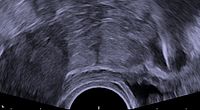
Photo from wikipedia
Water reclamation in spaceflight applications, such as those encountered on the International Space Station (ISS), requires complex engineering solutions to ensure maximum water recovery. Current vapor compression distillation (VCD) technologies… Click to show full abstract
Water reclamation in spaceflight applications, such as those encountered on the International Space Station (ISS), requires complex engineering solutions to ensure maximum water recovery. Current vapor compression distillation (VCD) technologies are effective but produce highly concentrated brines and often cause scaling within a separation system. This work evaluates initial steps toward integrating pervaporation, a membrane separation process, as a brine management strategy for ISS wastewaters. Pervaporation performs separations driven by a chemical potential difference across the membrane created by either a sweep gas or a vacuum pull. Pervaporation membranes, as with most membrane processes, can be subject to scaling. Therefore, this work studies the anti-scaling properties of zwitterions (polymeric molecules with covalently tethered positive and negative ions) coated onto sulfonated pentablock terpolymer block polymer (Nexar) pervaporation membrane surfaces. We report a method for applying zwitterions to the surface of pervaporation membranes and the effect on performance parameters such as flux and scaling resistance. Membranes with zwitterions had up to 53% reduction in permeance but reduced scaling. The highest amount of scaling occurred in the samples exposed to calcium chloride, and uncoated membranes had weight percent increases as high as 1617 ± 241%, whereas zwitterion-coated membranes experienced only about 317 ± 87% weight increase in the presence of the same scalant.
Journal Title: ACS Omega
Year Published: 2023
Link to full text (if available)
Share on Social Media: Sign Up to like & get
recommendations!